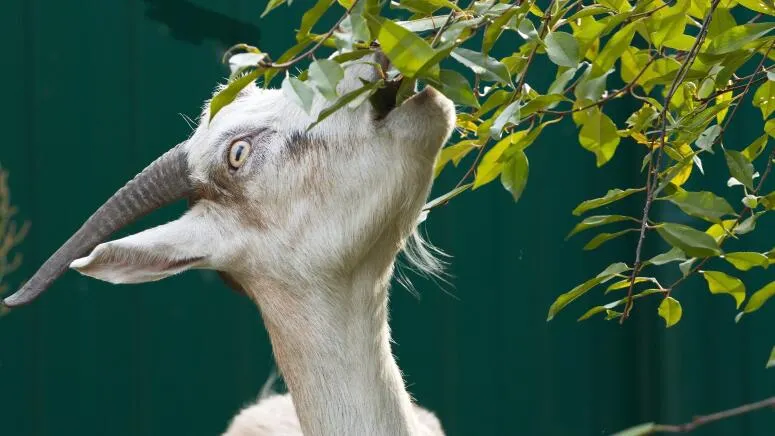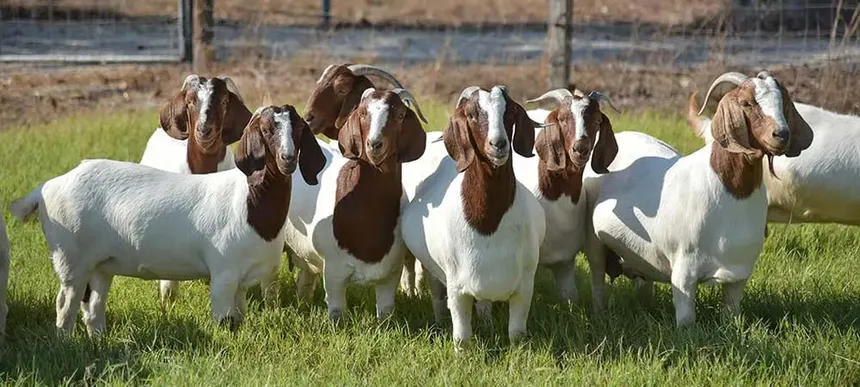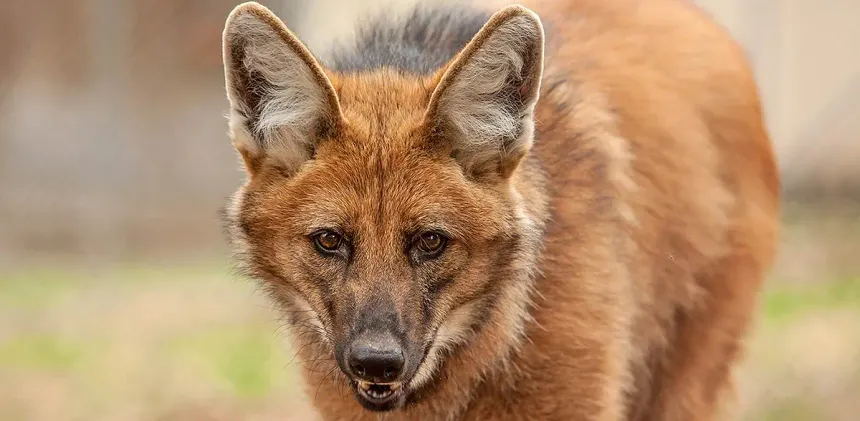“What Can Goats Eat? A Complete Guide to Goat Nutrition”

Goats are among the most adaptable and inquisitive animals on the farm. Known for their ability to nibble on almost anything, goats are actually selective browsers—they prefer a varied diet of shrubs, leaves, weeds, grasses, and more. But what exactly can goats eat safely? Understanding proper goat nutrition is essential for healthy growth, reproduction, and milk or meat production.
This guide breaks down everything goats can (and can’t) eat—from forage and hay to treats, grains, and kitchen scraps.
1. Forage and Browsing: The Core of a Goat’s Diet
In the wild or on pasture, forage makes up the majority of a goat’s natural diet.
✅ Safe and Healthy Forage Includes:
- Weeds (thistle, dandelion, plantain)
- Brush (brambles, blackberry bushes)
- Leaves and twigs from trees like willow, ash, and mulberry
- Vines (grapevine, kudzu)
- Grass and pasture plants
Goats are browsers, not grazers like sheep, meaning they prefer woody and leafy plants over grass.
2. Hay: The Winter Staple
When fresh forage is unavailable (e.g., in winter), hay becomes the most important feed source.
✅ Best Hay for Goats:
- Legume hay (like alfalfa) – high in calcium and protein; ideal for milking does and young kids
- Grass hay (like Bermuda, Timothy, Orchard grass) – a solid base for maintenance diets
⚠️ Avoid:
- Moldy or dusty hay, which can cause respiratory issues or poisoning
3. Grains: Energy Boosts for Certain Goats
Grains can be given to goats that need more energy (e.g., growing kids, pregnant or lactating does, or bucks during breeding season).
✅ Safe Grains:
- Cracked corn
- Barley
- Oats
- Commercial goat feed pellets
Feed grains in moderation, as too much can lead to bloat, acidosis, or urinary stones (especially in male goats).
4. Vegetables and Fruits: Healthy Treats
Fresh produce is a favorite among goats—but some types are safer than others.
✅ Safe Veggies:
- Carrots
- Cabbage
- Spinach
- Celery
- Pumpkin
- Sweet potatoes
- Zucchini
✅ Safe Fruits (in moderation):
- Apples (without seeds)
- Watermelon
- Bananas
- Pears
- Grapes
- Berries
⚠️ Avoid:
- Onions
- Potatoes (especially green ones)
- Tomato leaves
- Avocados
5. Kitchen Scraps: What’s Okay and What’s Not
Goats love human food, but processed foods are a no-go.
✅ Acceptable Scraps:
- Leftover veggie peels (no onions or potatoes)
- Fruit rinds (like watermelon)
- Cooked pasta or rice (occasionally)
- Stale bread (sparingly)
🚫 Avoid:
- Sugary or salty snacks
- Moldy food
- Meat or animal products
- Chocolate, caffeine, and alcohol

6. Minerals and Supplements
Goats need specific minerals to stay healthy.
✅ Must-Haves:
- Loose mineral supplements (formulated for goats, not blocks)
- Salt (free-choice or mixed into minerals)
- Baking soda (helps prevent bloat; free-choice)
7. Water: The Most Essential Feed
Goats require clean, fresh water at all times—especially lactating females. In winter, use heated buckets or break the ice daily to ensure access.
8. Toxic Plants to Watch Out For
Some plants can cause severe illness or death:
🚫 Common Toxic Plants:
- Rhododendron
- Azalea
- Oleander
- Yew
- Nightshade family (including tomato leaves)
- Wild cherry
- Foxglove
Fencing and pasture management are critical to keeping goats away from these.
Conclusion: Balance, Variety, and Caution Are Key
Goats thrive on a diverse, fiber-rich diet, with a mix of forage, hay, minerals, and the occasional treat. While they might seem eager to eat anything, not all foods are safe. Providing the right balance ensures strong, healthy goats with good milk, meat, or companionship quality.




